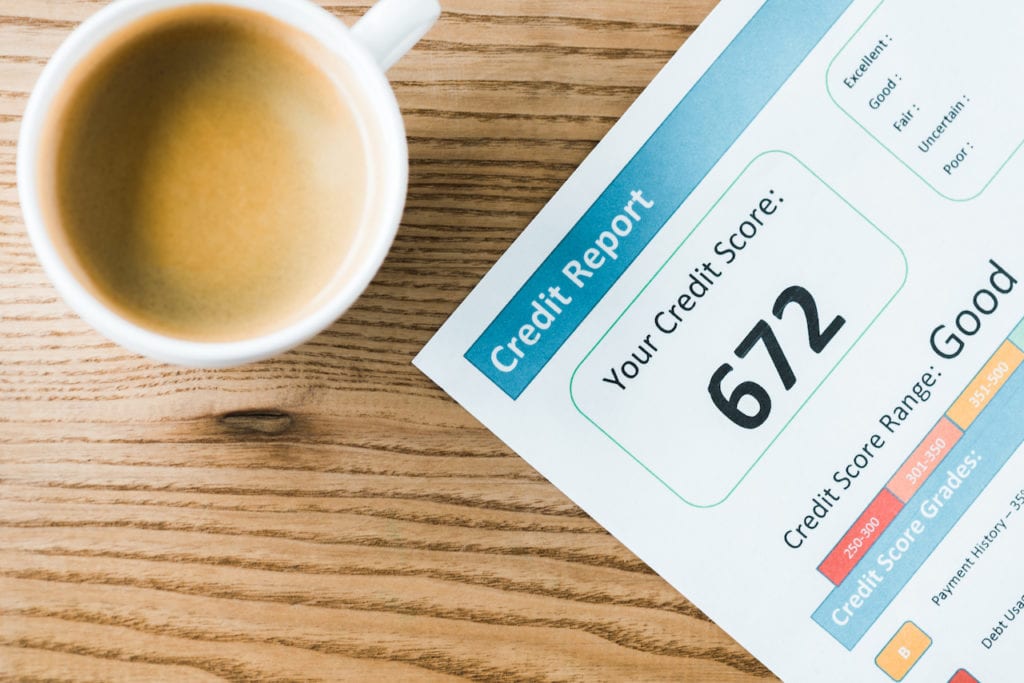The Fair Isaac Corporation, or FICO, is a credit score used by lenders and creditors. Ranging from 300 to 850, these scores can be used to determine if your credit application is accepted and the terms of the offer.
What is a FICO score?
A FICO Score is a three-digit number based on the information contained in your credit report. Chances are, if you have previously applied for a loan or credit card, you’ve heard the term “FICO score” before. Your FICO credit score determines how likely you are to pay your bills on time. Creditors use this score as an assessment of your credit to determine your rates and terms, and may even be the determining factor of your application approval.
FICO scores typically range anywhere between 300 to 850, with the average score reaching 710 in the United States, as of 2020. It is important to note that some industry-specific scores can go up to 900.
Scores are based on your credit reports from the consumer credit reporting bureaus. A credit bureau details all of your credit activity and your financial history. Creditors use this information to determine your ability and likeliness to repay debt.

About the Fair Isaac Corporation
FICO has a reputation as one of the primary credit-rating companies in the United States, introducing their first score in 1981. Their scores have infiltrated through various industries over the years, with different score types based on the type of credit product or service.
How important is my FICO score?
FICO scores are used by most creditors, including lenders and insurance providers. This credit scoring model is used to determine your credit risk. It shows how likely you are to pay back the money loaned to you.
What is A Good Fico Score?
A higher score equates to better interest rates and favorable terms on your loans. You may be approved if your credit history is sub-par, but the terms of your loans may be unfavorable compared to those offered to high-scored applicants . This includes higher insurance premiums.
You can use your score to determine your likelihood of approval and the favorableness of your loan terms. Many lenders have a credit score threshold – you must meet these score requirements to continue on in the approval process.
Different creditors have different credit thresholds. Check their website to see the requirements you must meet to be approved. Sometimes, a creditor may use a scoring model other than FICO. It is important to note that not all companies choose to disclose this information.
How is my FICO score calculated?
FICO scores calculations are based on information found in your consumer credit reports. FICO breaks down its scoring criteria into five main categories, with a different percentage-value based on the importance of a category.
- Payment history (35%): This is your history of paying bills and is the most important factor in determining your score. It includes your on-time and late payments on credit accounts.
- Amounts owed (30%): This details the amount you owe on credit accounts and the portion of available credit that you are utilizing.
- Length of credit history (15%): Your length of credit history is the age of your accounts.
- Credit mix (10%): Your credit mix is the type of accounts you have and the variability between them. Different accounts include credit cards and mortgages.
- New credit (10%): Recently opened accounts and credit inquiries can also influence your score.
Read: Credit Score for Beginners
Credit score ranges: Is my credit good?
Different lenders and credit card issuers have different ideas on what makes a score, “good.” Generally speaking, higher scores are better than low ones. Currently, a score above 670 is considered to be “good,” with scores above 750 being “very good” or “excellent,” and scores under 550 as “poor.”
If you fall in the “fair” or “poor” categories, there are many credit repair organizations that can help you rebuild your credit and improve your score.
What do the different scores mean?
Although there are dozens of different types of FICO scores, they fall under two main categories:
- Base scores: This is the most widely used type of score.
- Industry-specific scores: These scores pertain to different types of credit products. Sub-categories include credit cards or different types of loans, such as auto loans.
FICO releases new editions and versions of their scores to improve upon their score calculations and provide more reliable scores for lenders. Each scoring model has multiple editions, but lenders are not required to use the most current versions to calculate your credit risk.
In addition, FICO has a different version of their base score for each of the major credit bureaus: Experian, TransUnion and Equifax. The most recent edition of the FICO score is FICO Score 9.
Industry-specific scores follow the same guidelines, with multiple versions and editions being available to lenders.
Although you may not be able to find out the exact version or edition a creditor is using, the primary criteria for scores is similar across all FICO scores.
FICO recap
FICO scores are used to evaluate potential customers and determine a creditor’s lending decision. It is important to understand what affects your FICO scores in order to maintain a good credit score and build good credit. Remember, the better your credit, the better your rates and terms on loans, such as auto loans, and credit cards will be in the future. If you want a free credit check, many credit card companies will provide your FICO score for free on your monthly statements.
If you are looking to repair your credit score Cambio can help! We will help you build your credit and ensure your credit reports are accurate. Click here for more information


